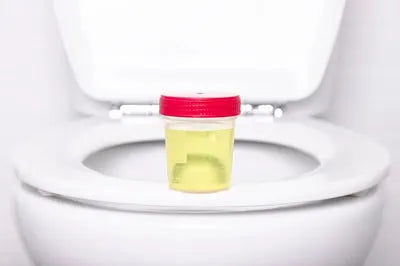Urination problems in females present themselves in a number of ways. A common misconception is that these problems are very rare and only affect the elderly. Yet, women of various age groups are vulnerable to such issues.
If you or your loved one are struggling with these problems, there is nothing to be ashamed of. Bladder problems in women can occur at any stage in life and are easily manageable with the right steps.
Having access to correct information is essential for identifying any signs and symptoms so that you can seek the right treatment. Here is everything you need to know.
Urination Problems in Females
Bladder problems in women can present themselves in several ways. Some of the major issues include:
-
Urinary Tract Infections (UTIs)
Women are particularly vulnerable to Urinary Tract Infections (UTIs). Research has shown that up to 66.78% of studied women have experienced these infections. This is because the short length of the urethra in the female body makes it easier for bacteria to enter and wreak havoc on your bladder. If you're dreading your bathroom visits because of pain or burning sensation while passing urine, UTIs might be the culprit.
-
Painful Bladder Syndrome
On the flip side, if you are experiencing symptoms of a UTI that simply refuse to leave, you might be suffering from Painful Bladder Syndrome. Known as Interstitial Cystitis (IC) by doctors, this condition causes chronic pain in the bladder and is often confused with UTIs. But, while UTIs can be quickly nipped in the bud with the right antibiotics, the underlying cause of IC remains unknown.
If you are experiencing pain in your pelvic and groin regions as well as frequent urges to urinate, it might be time to consult a doctor.
-
Urinary Retention
As the name suggests, urinary retention refers to your bladder's inability to empty itself fully. This means that every time you visit the toilet, some amount of urine is left in your bladder. Urinary retention can be caused by a number of issues, such as nerve damage, kidney stones, or even tumours. If you are facing trouble emptying your bladder or cannot void your bladder fully, you could be experiencing urinary retention.
-
Overactive Bladder
Do you find yourself running to the washroom again and again? It might not even lead to a urine stream. Yet, the urge persists.
If yes, you could have an overactive bladder. Usually caused in the long term by neurological issues, this condition can also occur temporarily if you have a UTI. An overactive bladder may or may not lead to urine leakage, called urge incontinence.
-
Urge Incontinence
If you are experiencing an uncontrollable urge to pee very frequently, you could have urge incontinence. People with urge incontinence lose control over their bladder and even wet their pants at times.
You might think that locking yourself up in the bathroom is the only solution. But products such as Friends Premium Adult Dry Pants ensure that you can continue enjoying life to the fullest.
-
Problems During Pregnancy
Pregnancy causes several changes to your body and bladder problems are, unfortunately, one of them. Hormonal shifts in your body and the growing pressure of a baby can often lead to frequent urination in ladies. At times, the physical trauma of pregnancy and childbirth can also lead to stress incontinence.
-
Stress Incontinence
Let us paint a picture for you—for some time now, you have avoided laughing, coughing, or sneezing when in public. Why? Because every time there is any pressure on your bladder, you experience urine leakage.
If this sounds familiar, you might have stress incontinence.
Stress incontinence is very common during pregnancy and after childbirth. Experiencing menopause can also weaken your pelvic muscles due to the dip in oestrogen hormone levels.
For such minor leaks, products such as the Friends Adult Insert Pads are a great way to prevent any accidents. You can also try Friends UltraThinz Slim Fit Dry Pants for Women for greater absorption, more comfort, and a more sleek, underwear-like fit.
If you want to learn more about urination problems in females and the difference between stress and urge incontinence, you can refer to this blog post.
Signs of Bladder Problems in Females
Here are some of the common signs and symptoms of bladder problems in females to look out for:
- Leaking urine during everyday activities, especially when coughing, sneezing, laughing, etc.
- Frequent urination in ladies (more than 8 times during the day and more than twice at nighttime)
- Sudden and uncontrollable urges to pee
- Urinating while sleeping (bed wetting)
- Pain, especially a burning sensation, while urinating
- Radiating pain from the vagina to the anus
- Pink urine, indicating the presence of blood
- Cloudy or foul-smelling urine, pointing towards an infection
How to Treat Urination Problems in Females
If you or someone you know is experiencing signs of bladder problems in females, here are some ways to treat it:
-
Maintain Proper Hygiene
If you are experiencing frequent UTIs, improving your hygiene practices can help. Make sure to pass urine every time after engaging in sexual intercourse to flush out any harmful bacteria introduced into your body. Clean the outside of your vagina with lukewarm water every day and avoid using soap as it can disrupt the natural balance of your body.
-
Make Healthy Lifestyle Changes
Several bladder problems in women can be prevented or resolved with some quick and easy lifestyle changes. Wearing soft, cotton underwear that allows your skin to breathe can go a long way in preventing infections. Maintaining a healthy diet with lots of fibre and hydration ensures good bladder health and flushing out of toxins. Avoid holding the urge to urinate unless necessary and take your time while on the toilet to empty your bladder properly.
-
Pelvic Floor Exercises
Pelvic floor exercises, also known as Kegel exercises, can help women who suffer from stress incontinence. These exercises strengthen your pelvic muscles to prevent urine leakage due to pressure from sneezing, coughing, laughing, etc. For these, tense your pelvic floor muscles without holding your breath or tightening your stomach. You can feel them by recreating the sensation of stopping urine flow. Complete a set by doing this ten times, holding for one second each. You can do several such sets throughout the day.
-
Bladder Training
Bladder training can be a helpful solution for those experiencing urge incontinence. This includes devising a bathroom schedule to empty the bladder at regular intervals. It also includes using relaxation techniques such as deep breathing to control the sudden urge in between scheduled bathroom visits.
-
Consulting A Doctor
If none of these measures are helping you, we would recommend consulting a doctor. This will allow you to take the right course of action, be it treatment or management.
Life Does Not Have to Stop
Experiencing urination problems is not the end of the world, even if it may feel like that at times. Make sure to implement these measures and seek help if necessary so that you can continue living your life to the fullest. Use the right resources to determine the best products for your needs so that we can wish you Azadi Mubarak from such bladder issues!
Frequently Asked Questions (FAQs)
1. Can pregnancy cause changes in urination patterns?
Yes, pregnancy can cause changes in urination patterns. A growing baby can put pressure on the bladder and increase the number of times you feel the urge to pee. Experiencing labour can also weaken your pelvic muscles and cause stress incontinence.
2. When should someone seek medical help for urination issues?
You should seek medical help for urination issues if you are experiencing extreme pain, blood in urine, or your quality of life is being impacted.
3. Can certain medications affect urination?
Yes, some medications prescribed for blood pressure or mental health disorders might have an impact on urination. Seek information about possible side effects from your healthcare provider in such cases.
4. Can frequent urination in ladies be a sign of a serious condition?
There are a number of reasons why you might be experiencing frequent urination. Reasons such as pregnancy, childbirth, menopause, etc. are completely normal. However, frequent urination can also be a sign of serious conditions such as diabetes or major bladder issues. It is always recommended to see a doctor if you are worried.
5. What does pain during urination suggest?
Pain, especially a burning sensation, during urination may suggest the presence of an infection. Consult a doctor in this case to get the right course of antibiotics for treatment.















